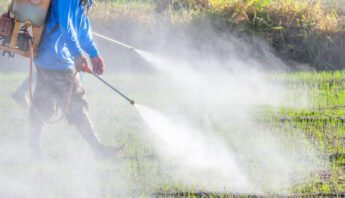Last week, we learned that an official at the Environmental Protection Agency (EPA) helped Monsanto block additional review of glyphosate’s link to cancer. News also broke that Monsanto employees helped ghostwrite scientific papers related to the herbicide’s impact on human health.
Last week, we learned that an official at the Environmental Protection Agency (EPA) helped Monsanto block additional review of glyphosate’s link to cancer. News also broke that Monsanto employees helped ghostwrite scientific papers related to the herbicide’s impact on human health.
How do we know this? A federal judge in San Francisco unsealed documents revealing that Jess Rowland — the EPA official charged with evaluating the cancer risk of glyphosate exposure — was looking out for Monsanto’s interests instead of closely evaluating the herbicide’s health impacts.
We’re not surprised
Unsettlingly, this isn’t as shocking as one would hope. From the beginning of the glyphosate review, Monsanto has been interfering with the process to prevent EPA from determining that the chemical is a carcinogen. The original Scientific Advisory Panel (SAP) hearing was postponed last October due to a public complaint from Monsanto that participating epidemiologist Dr. Peter Infante was biased. Monsanto pressured EPA to remove Infante from the panel because he had historically defended plaintiffs in chemical exposure cases against Monsanto and had challenged the legitimacy of industry-funded studies.
Monsanto was granted their request, and Infante was removed from the panel.
The glyphosate SAP finally convened in mid-December, and came to a close with the panel “split” on the issue.
Corporate cronyism runs deep
Through unsealed records of emails and phone calls, we see that corporate interference around the glyphosate review runs deep. EPA’s Rowland bragged to a Monsanto executive that he “deserved a medal” if he could kill another agency’s investigation into the chemical — referring to the Agency for Toxic Substances and Disease Registry (ATSDR), which announced in 2015 that it planned to publish a toxicological profile of glyphosate. Rowland’s communications with Monsanto staff were familiar and conspiratorial; one Monsanto official cautioned colleagues, “I doubt EPA and Jess can kill this,” and warned them not to “get your hopes up.” Ultimately, ATSDR never published the review.
Additionally, Monsanto’s toxicology manager and his boss were ghostwriters for two reports that Rowland’s committee utilized to reach its initial conclusion in September 2016 that glyphosate wasn’t carcinogenic. The strategy of relying on Monsanto ghostwriters for certain sections was revealed in email documents about containing costs for the research. Monsanto is denying these ghostwriting allegations, and EPA officials have yet to make public comment.
Mounting pressure
Monsanto is feeling the heat when it comes to their flagship herbicide. The primary ingredient in RoundUp, glyphosate, is under increasing scrutiny for its links to cancer. While the EPA review is ongoing, California recently registered the chemical under “Prop 65,” meaning the state considers it a possible carcinogen. And in 2015, the UN’s International Agency for Research on Cancer (IARC) deemed glyphosate “probably carcinogenic to humans” after reviewing independent, peer-reviewed studies. More than one hundred new cancer lawsuits have been filed against Monsanto over the last week — not only from farmers and farm workers, but from consumers and home gardeners as well.
With EPA facing severe budget cuts, and the current administrator clearly aligned with corporate interests, the future of the agency is uncertain. But at PAN, we will be doing everything in our power to ensure the agency follows sound, independent science in its review of glyphosate — and keeps the public well-being front and center in its mission.







